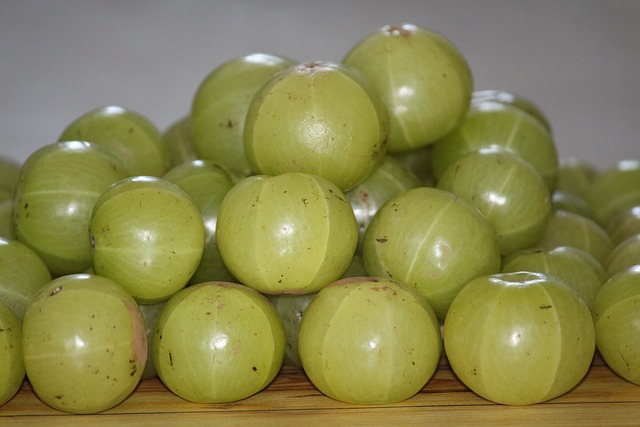Amla | Vavdos Leaf of Life Herbs
Amla (Phyllanthus emblica)

Amla (Phyllanthus emblica) Classification and Description.
Unknown Type
Description of Amla
Amla, also known as Indian Gooseberry, is a powerful rejuvenative herb in Ayurvedic medicine, rich in antioxidants, particularly Vitamin C. It is known for boosting immune function, improving digestion, and promoting healthy hair and skin. Amla also supports cardiovascular health by lowering cholesterol and reducing inflammation.
The historical context of Amla in various ancient and traditional medicine systems, and the geographical distribution of it's usage.
Various names were used for Phyllanthus emblica throughout the ages.
Let's dive into the history of Amla
Modern medicine and health benefits from the consumption of Amla
Health Conditions Supported by Amla
Health benefits of Amla
Description of Amla
Amla (Phyllanthus emblica) is considered one of the most important Rasayana (rejuvenative) herbs in **Ayurvedic medicine**. It has been used for over 5,000 years to promote longevity, boost immunity, and support overall health. The high concentration of Vitamin C and other potent antioxidants, such as tannins and flavonoids, make Amla an excellent remedy for reducing oxidative stress, improving skin and hair health, and supporting digestive function. Amla is also known for its ability to reduce cholesterol and promote cardiovascular health, making it a valuable herb for modern-day wellness. Research shows that Amla can support immune health, enhance digestion, and protect the body from inflammation.
Scientific Data, citations and references
- No references available
Dosage and timing for better consumption of Amla
* You should always consult your MD (Doctor) before.
Standardised dosage for Amla
You may consume a portion of 500–1,000 mg/day of standardized extract or 2–4 grams/day of dried fruit of Amla per dose.
Optimized frequency for the consumption of Amla
The frequency of the dosage could be 1-2 times/day.
Time of the day for consumption and more
Amla, should be taken With meals.
Amla's interactions with other medication and avoidance.
* You should always consult your MD (Doctor) before any use.